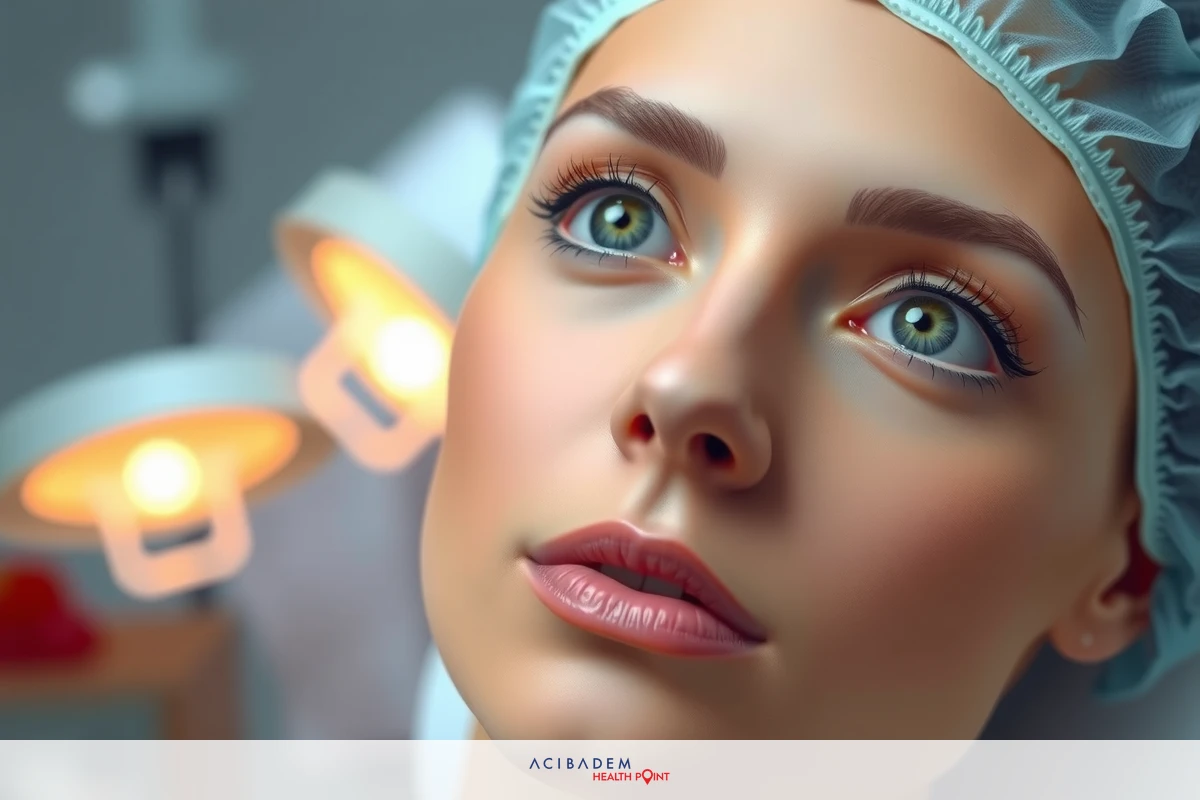Why Do You Get Black Eyes After Rhinoplasty
Why Do You Get Black Eyes After Rhinoplasty Rhinoplasty, a term that resonates with an array of emotions, apprehension, anticipation, excitement. It’s the promise of refined aesthetics and improved function; yet it bears an inevitable aftermath: black eyes. Not a sign of botched surgery or failed procedure but a common occurrence post rhinoplasty. Its roots lie in the intricate network of blood vessels in our facial structure disrupted during the operation.
The onset is immediate but temporary, a disconcerting visual reminder of surgical trauma soon to fade away. Like autumn leaves shedding their vibrant hues for winter’s somber palette, your face too will regain its normalcy following rhinoplasty-induced bruising and swelling. The focus here is not just on why you get black eyes after rhinoplasty but also how to manage these effects optimally for swift recovery.
Causes of Black Eyes After Rhinoplasty
In the vast realm of rhinoplasty, what’s often overlooked is the phenomenon of black eyes a visual marker that evokes both curiosity and concern. But where does this discoloration originate? The answer lies in our facial anatomy. During a rhinoplasty procedure, there is an inevitable disruption to the intricate network of
blood vessels around our nose and eyes; this leads to leakage of blood into surrounding tissues, thus creating visible bruising or ‘black eyes’.
One may wonder why this happens specifically after a nasal reshaping operation. A critical factor here is gravity, our constant yet unseen companion. As fluid from disrupted vessels seeps into surrounding tissues post-surgery, it follows the path dictated by gravitational pull: downwards towards your eye sockets! This migration results in pooling under your eyes, causing them to darken as time progresses.
Not everyone will experience these blackened canvases on their faces following rhinoplasty. It varies from person to person based on individual healing capacities and surgical techniques employed during operation. Some might notice mild yellowing while others could wake up with pronounced “raccoon” like dark circles, the spectrum is wide and diverse!
The next natural inquiry would be about recovery, is there anything one can do to speed it up? Yes indeed! Swelling and bruising are part-and-parcel of your body’s healing process but certain steps can help mitigate their intensity allowing for a smoother journey towards full restoration. Remember though: patience remains key during recovery as time works its magic behind-the-scenes repairing traumatized tissue.
Managing Bruising and Swelling
As the curtain falls on your rhinoplasty procedure, it’s time for the second act: recovery. It is during this phase that one encounters a duo of inevitable companions—bruising and swelling. They arrive unbidden, painting a mosaic of blues, purples, yellows under your eyes, a temporary spectacle that fades with time.
So how does one manage these transient side effects to ensure swift healing? Here are some strategies:
- Elevation – By simply keeping your head elevated above heart level, you can limit fluid accumulation around facial tissues thus reducing both bruising and swelling.
- Cold Compresses – Applying cold compresses around the affected area (not directly on nose) helps constrict blood vessels minimizing leakage into surrounding tissues.
- Adequate Hydration – Drinking plenty of fluids keeps body hydrated assisting in faster removal of toxins aiding overall recovery.

This is a close-up image of a woman’s face. Her eyes are wide open and she appears to be surprised or in a state of shock. She has makeup on, which accentuates her features. The background suggests that this might be taking place inside an operating room or a similar medical setting. - Proper Rest – Ensuring ample rest gives your body the much needed downtime to focus its energies on healing post-surgery trauma.
- Avoiding Stressful Activities – Refrain from strenuous workouts or any activity which may increase blood pressure causing more bleeding and hence more bruising/swelling.
Though, everyone heals differently so don’t be disheartened if someone else’s black eyes fade before yours! Patience paired with these tips should guide you toward smoother sailing through choppy waters of post rhinoplasty recovery!
Tips for a Speedy Recovery
Recovery from rhinoplasty is not just about managing physical symptoms like bruising and swelling, but also about nurturing oneself back to health. It’s a dance of balance—between rest and activity, hydration and nutrition, patience and anticipation. Ensuring a speedy recovery involves adopting strategies that promote healing while minimizing discomfort.
Here are some additional tips that can aid in your journey towards swift recovery:
- Nutrition – Consume a balanced diet rich in vitamins C & K which help repair tissues faster post surgery.
- No Smoking – Avoid smoking as it constricts blood vessels hampering the healing process. 3. Avoid Aspirin – Aspirin thins the blood which can exacerbate bruising; instead opt for medical advice on safe pain management options.
- Sun Protection – Protect yourself from direct sun exposure as it could darken bruises or cause irritation to sensitive skin post-surgery.
- Follow-up Appointments – Regularly attend follow-up appointments with your surgeon who can monitor progress and address any unexpected issues timely.
Everyone’s body responds differently to surgery so don’t compare your progression with others’. Trust in your own unique path towards recovery!
Frequently Asked Questions
How long does it take for black eyes to fade after rhinoplasty?
Typically, bruising begins to fade within a week or two post-surgery. However, the duration can vary depending on individual healing capacities and extent of bruising.
Can I do anything to prevent getting black eyes during my surgery?
While it's not possible to completely avoid bruising after rhinoplasty due to disruption of blood vessels in facial tissues, following surgeon's preoperative instructions can help minimize its severity.
Does everyone get black eyes after rhinoplasty?
Not necessarily. The occurrence and intensity of post-rhinoplasty bruising varies widely among individuals based on several factors like skin type, age, surgical technique etc.
Is there any medication that will speed up the fading process of my black eyes?
Certain vitamins like C & K could aid tissue repair but always consult your doctor before starting any new supplements or medicines.
Are follow-up appointments necessary if I feel fine post my surgery?
Yes! Follow-up visits are crucial as they allow your surgeon to monitor recovery progress and address potential complications early.











